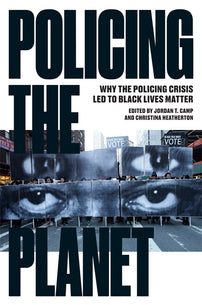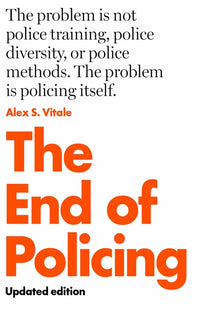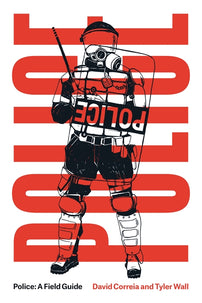The law of the land: decolonising criminal justice
From the displacement of indigenous communities to the erasure of black lives, mass incarceration exists to exert political and economic control over racialised subjects. Until we treat criminal justice reform as an act of anti-colonial resistance, they have no hope of emancipation.

Jack Charles was just four months old when he was stolen from his mother. Under the White Australia Policy, Jack was one of at least 6,000 Aboriginal children forcibly removed from their families and ‘assimilated’ into the white population. Jack doesn’t remember being transported the 250km from his family, where he was taken to the Salvation Army boys’ home in Boxhill. He does, however, remember being the only Aboriginal child in the home. He remembers the attempts to dissuade him against any sense of his Aboriginality. And he remembers, vividly, the regular bouts of physical and sexual violence administered to cure his ancestral curiosity.
When this treatment began to wear off, the state fell back on more reliable devices of cultural genocide. The first time Jack was arrested was when he went searching for his birth mother at 17. As property of white Australia, it was a criminal offence to leave his foster home without permission. Having spent his childhood being detained under white rule, his adult life would be no different; Jack was imprisoned 22 times between 1970 and 2006 for drug use and theft. “It’s very hard” Jack says “to heal one’s self from these policies of the past.” He speaks for an entire generation - an entire community - that has been robbed of life, land and liberty.
Despite making up less than 3% of the total Australian population, Aboriginal and Torres Strait Island people represent 27% of Australia’s prisoners. If you are an Aboriginal boy, you are more likely to go to prison than university. When footage was uncovered of Aboriginal children in Don Dale Youth Detention Centre being mechanically restrained, stripped, teargassed and spit-hooded, the Prime Minister called for an inquiry into how this could possibly have happened. Apparently, he needed more time to understand why prisoners were being treated so cruelly in a detention facility where 96% them were indigenous. To Indigenous people the answer is desperately clear: prison serves to dispossess, displace and disable native communities.
This isn’t just the case in Australia either. 1 in 3 prisoners in Canada and 1 in 2 prisoners in New Zealand are Indigenous too. To fully understand mass incarceration we need to see it as, at root, a fact of colonialism. And it is this that also explains why indigenous people are primarily imprisoned for acts linked to poverty, unemployment, drug addiction, mental health and histories of sexual abuse and trauma. These are precisely the kind of social ills generated by colonialism in the first place. As an act of warfare, colonialism assaulted an entire community not only with physical and sexual violence, but with the rupture of existing social realities. By criminalising the very behaviour engendered by this destruction, prison does not just punish indigenous people for reacting to colonial trauma. As an exercise of state-sanctioned violence, it forces them to relive it.
[book-strip index="1" style="display"]This is also why the rate of re-offending is significantly higher for Indigenous offenders. Or, to use liberal terminology, there is a failure of rehabilitation. The truth is, though, we should be just as worried about instances of rehabilitative success. When Jack was arrested for theft, he said he was robbing “as rent collection for stolen Aboriginal land.” For some, the fact that Jack hasn’t returned to prison since 2006 proves that he was, eventually, rehabilitated. But it also reveals the true meaning of the term: to be rehabilitated means to surrender your native title and obey colonial land law. In this sense, prison is not just a geospatial but a behavioural management of native communities. Jack was told to either fall in line with white colonial rule or stay behind bars. Either way, he is kept in colonial chains forever. Whatever he does, Jack will never collect his overdue rent for stolen land. That would defeat purpose of genocidal occupation in the first place: the violent pursuit of profit.
Capitalist punishment
Under colonial law, Aboriginal territory was declared unowned and uninhabited. It was Terra nullius: nobody’s land. In place of human status, indigenous people were assigned an exchangeable market value, measured by the land and labour from which they were alienated. Ironically, we rely on a dead language to understand how colonialism keeps itself alive: by deriving economic utility from the racialised identity of human beings. If we cared about justice, then those benefiting from colonial robbery would have served their dues long ago. Instead, then, justice has served an entirely different purpose altogether: to protect the accumulation of colonial wealth.
Nowhere exemplifies the inextricable link between mass incarceration and colonial logics more than the US. It was enslaved labour that allowed the US to emerge as a global economic powerhouse. And it was enslaved labour that cemented the black-white wealth gap that exists there today. That’s because the kind of inequalities that define slavery – namely wealth, land and property – do not simply fade away with time. Rather, they reinforce themselves by impeding access to labour, healthcare and housing markets. Today, the median White family has 41 times more wealth than the Black equivalent.
[book-strip index="2" style="display"]Insofar as poverty is a leading indicator of incarceration, racial inequality generates vast racial disproportionality. The rate of imprisonment is five times higher for Blacks than for Whites. 1 in 3 black men will go to prison at some point in their lives. And given that prison leads to employment discrimination and a loss of income, the poverty-prison cycle systematically excludes black communities from collective wealth. This is not to imply the cycle is somehow self-sufficient. Rather, racial inequality is protected by the same institutions that underpinned slavery.
Take modern police operations, which evolved directly from “Slave Patrols” used in the antebellum southern states. Black people used to be captured for escaping their masters or breaking plantation rules. Now they are pulled over and killed for a faulty break light. Getting shot by the police is a leading cause of death for young black men, who are 2.5 times more likely than white men to die during a police encounter. And instead of white men on horseback, it’s facial recognition - which misidentifies black faces 5 to 10 times more than white faces - that racially profiles black men. The infrastructure may have changed, but modern policing emulates the role of slave patrols in criminalising blackness.
If it’s not blackness, then its homelessness, illiteracy or mental illness (all of which, by the way, disproportionately affect black people). This uncovers another layer of prison’s colonial function: to uphold structures of economic exploitation. There is a reason why 75% of the United States’ prisoners are functionally illiterate, and why there are 10 times more people suffering from mental illness in prison than there are in mental hospitals. And that’s because there is more profit to be made putting these people in prison than addressing the social problems that lie underneath. Perhaps the most pertinent example is the criminalisation of homeless people who, by disobeying capitalist laws of private property, are of no value to rent collectors. They provide far greater value behind bars, as fuel for the prison-industrial complex.
This complex represents a symbiotically profitable relationship between state punishment agencies and the private sector. This includes private corporations supplying the goods and services required to run public prisons - food, hygiene products, healthcare and surveillance. It also includes the recruitment of prison labour; the 13th Amendment, which permits slavery as a form of punishment, provides perhaps the most blatant example of how prison maintains racialised economic hierarchies. It gives both the state and the private sector a major stake in the perpetuation of incarceration, ensuring that the criminal justice system is fed with enough serfs to keep it going. Serfs who, as we know, are disproportionately black. Prison isn’t proof of some lingering colonial hangover. Prison is a contemporary act of colonialism, subjugating black bodies to the interests of whiteness. And it’s no coincidence that these interests turn out to be transatlantic.
Maintaining whiteness
As the only country in Europe with no statutory time limit on detention, the UK captures tens of thousands of people indefinitely, without charge, for immigration purposes. They could be seeking asylum. They could have overstayed their visa. Or, in the case of the Windrush scandal, they could be black British citizens unable to prove their nationality. All of them are treated inhumanely; there were 446 incidents of self-harm in detention in 2017. All of them are segregated for economic gain; the security firm G4S made £14.3 million in profit running an immigration centre near Gatwick airport between 2012 and 2018.
And all of them, to borrow A. Sivanandan’s words, “are here because you were there.” Windrush citizens, whose descendants were enslaved by the British state, arrived as pre-ordered colonised bodies. Refugees continue to flee communities destroyed by imperial militarism. So-called “economic migrants” are victims of global inequality between the colonisers and the colonised. Detaining these people is a way of reminding them that they will always be subjects of the British colonial state, forever denied access to wealth and resources acquired through years of colonial dispossession. To put it differently, migrant detention is just one way in which the British criminal justice system maintains white notions of citizenship.
Crucially, it does so by holding it up against a particular image of blackness. Racial profiling means black men are more than eight times more likely to be stopped and searched by police. This populates a prison system that contains greater disproportionality of black people than does the United States. And it serves to frame violence and crime as an endemic feature of blackness. What was once predominantly framed as biological inferiority is now couched in terms of cultural difference. Whether it’s single-parent households, unstable employment or drug-use, racist narratives are used to justify – and are reinforced by - the criminalisation of black people. And whether it’s in reference to their DNA or way of life, the colonial state will satisfy its desire to “civilise” them.
Decolonising punishment
For many criminologists, Scandinavia is a blueprint for reform. Remodelling criminal activity as a social ill to be treated, the region largely speaks in a different language of restoration, not retribution. And when this model boasts lower rates of recidivism, there’s no doubt we should be listening. However, we cannot simply look to these remedies for inspiration if their prescription hasn’t started with a diagnosis of prison’s colonial function. Simply looking towards alternative models of criminal justice in isolation from this analysis won’t tell us what we need to know: how to de-colonise the criminal justice system.
To that end, some people will point to reforms in the countries I’ve mentioned. New Zealand has established Maori Land Courts, a judicial forum through which you can interact with owners or managers of Maori land. Canada is making headway in increasing judicial diversity. Although these reforms recognise the need to address racial bias, when it comes to resisting colonial power, they barely scratch the surface. That’s because we cannot rid the criminal justice system of its coloniality by looking at criminal justice in isolation.
Regardless of the racial diversity of prison guards, Aboriginal boys like Jack Charles will remain dispossessed if these guards are employed by the state to steal their land. Even under a judiciary that challenges its own racial bias, the prison industrial complex will always oppress black communities if the economy is designed to do so. And those who police our borders will continue to illegalise the existence of human beings even if they do it with a smile on their face. Targeted criminal justice reforms are essential and long overdue. However, we must demand more than just a new criminal justice system. We must demand a new kind of society over which this criminal justice system presides.
This means a radical redistribution of wealth – both within and between nations – as a matter of reparation. This means dismantling violent structures like closed borders. That means resisting capitalist hierarchies that serve to squeeze racialised communities out of economic progress. Only then will we begin to redress the kind of inequality that’s behind racial disproportionality in our prisons. Only then will we stop denigrating black lives in the name of social order. And only then will we stand a chance of finding non-punitive and non-oppressive ways to resolve conflict. It’s time we started treating criminal justice reform as an act of anti-colonial resistance. Otherwise, all we’re doing is finding new ways to crack the whip.
Oliver Durose is a researcher for a Labour MP and ran as the Labour Party Parliamentary candidate for Brentwood & Ongar in the 2019 General Election.
[book-strip index="3" style="display"]




